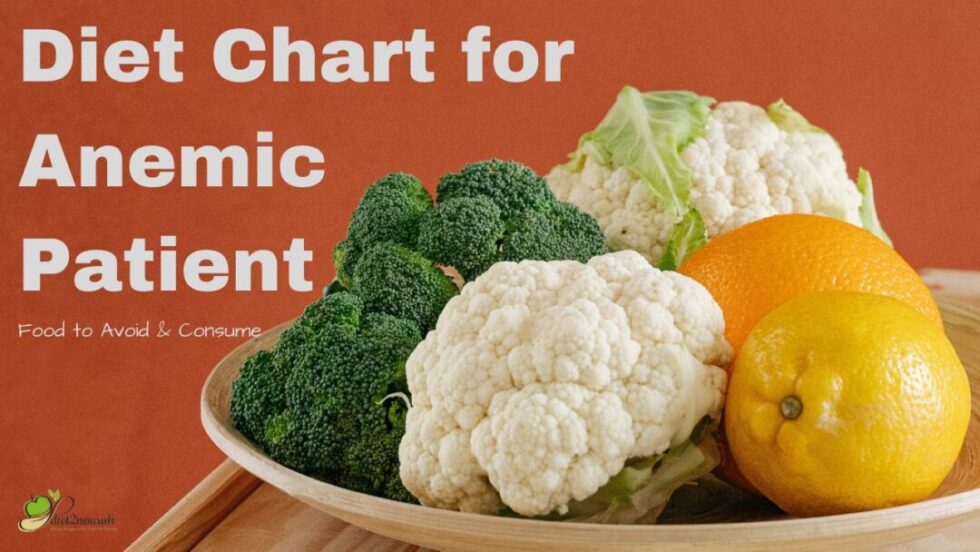Anemia is a condition where the body does not have enough healthy red blood cells to transport oxygen throughout the body. A proper diet is crucial for people with anemia as it can help to improve the production of red blood cells and increase hemoglobin levels. Here’s a diet chart for anemic patient that can help to combat anemia:
- Iron-Rich Foods: Iron is an essential mineral for the production of red blood cells. Include iron-rich foods like red meat, liver, chicken, fish, lentils, beans, spinach, kale, broccoli, and tofu in your diet. Vegetarians can also increase their iron intake by consuming fortified cereals, nuts, and seeds.
- Vitamin C: Vitamin C is known to improve the absorption of iron in the body. Include foods like oranges, strawberries, tomatoes, kiwi, bell peppers, and broccoli in your diet. You can also drink fresh fruit juices or take vitamin C supplements.
- Folate and Vitamin B12: Folate and vitamin B12 are necessary for the production of healthy red blood cells. Include foods like eggs, dairy products, fortified cereals, dark green vegetables, and legumes in your diet.
- Avoid Foods that Inhibit Iron Absorption: Certain foods can inhibit iron absorption in the body. Avoid consuming foods like tea, coffee, dairy products, and high-fiber foods like whole grains and bran. These foods can interfere with the body’s ability to absorb iron.
- Stay Hydrated: Drinking plenty of fluids, especially water, can help to improve blood flow and prevent dehydration. It is recommended to drink at least 8-10 glasses of water per day.
- Small and Frequent Meals: Consuming small and frequent meals can help to maintain blood sugar levels and prevent anemia-related fatigue. Eating small meals every 3-4 hours can also help to prevent iron-deficiency anemia.
- Consult a Doctor: In some cases, anemia may require medical intervention, and a doctor may prescribe iron supplements or other medications. It is essential to consult a doctor before making any significant dietary changes or taking supplements.
In conclusion, a well-planned diet can help to combat anemia by improving the production of red blood cells and increasing hemoglobin levels. Anemia patients should consume iron-rich foods, foods high in vitamin C, folate, and vitamin B12, and avoid foods that inhibit iron absorption. Staying hydrated, consuming small and frequent meals, and consulting a doctor are also important for the management of anemia. It is essential to seek medical advice before making any significant dietary changes or taking supplements. A registered dietitian can also provide personalized dietary recommendations for people with anemia.
